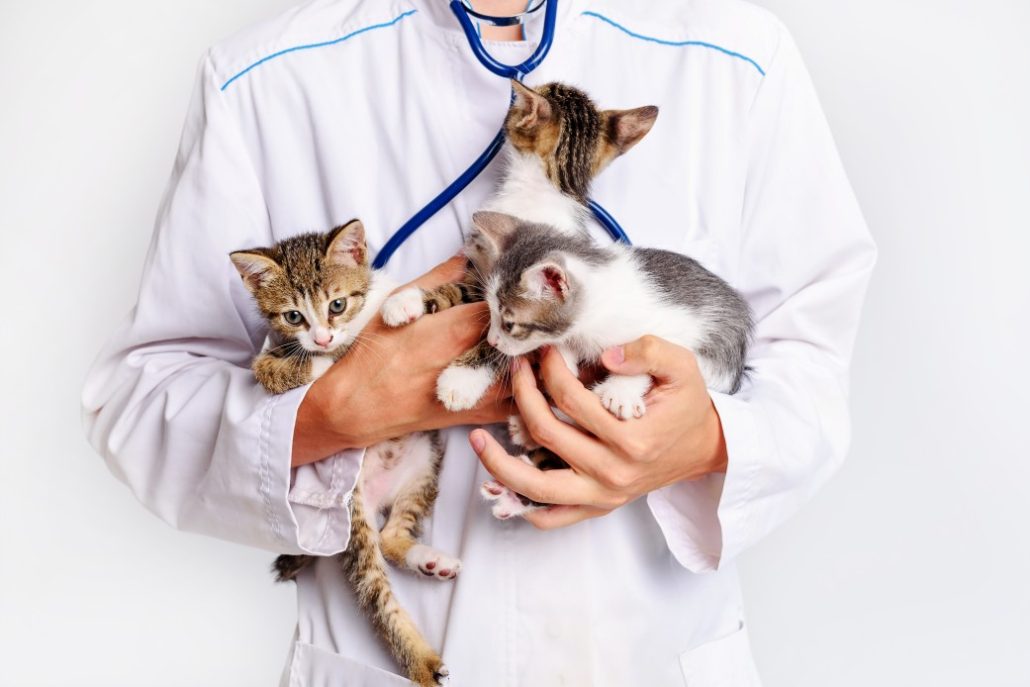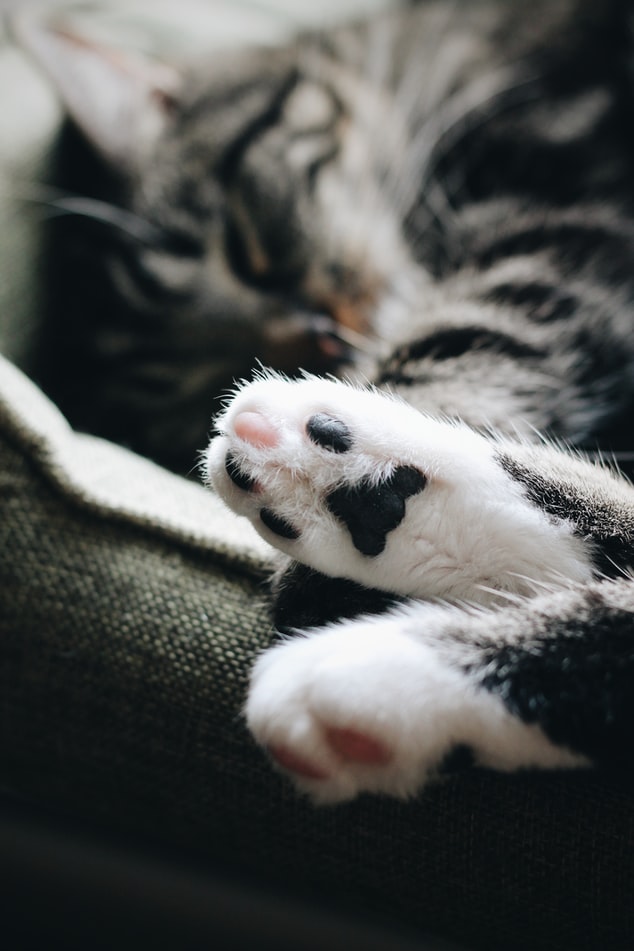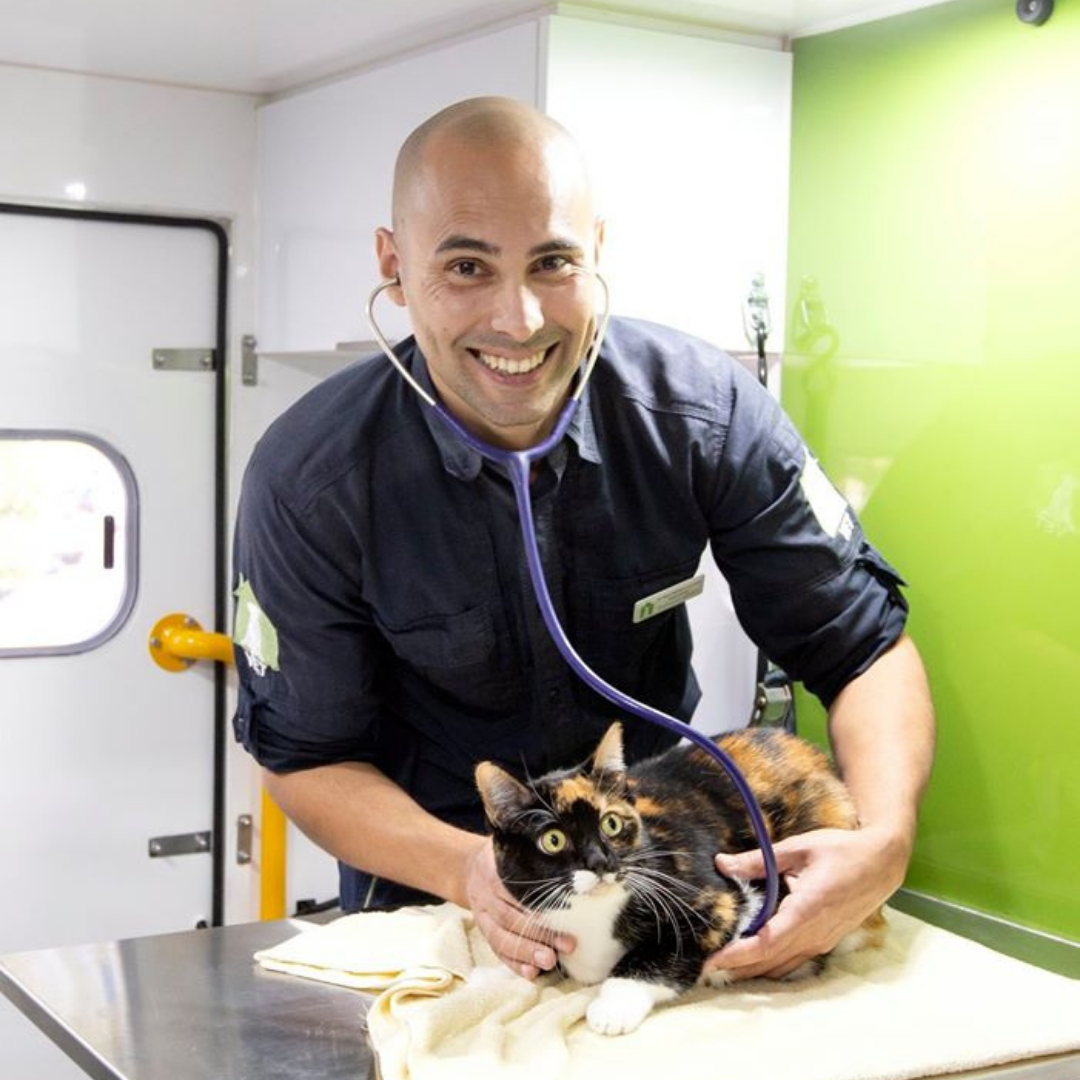Cats are known to be aloof and independent creatures. Many people, whether they own a cat or not, think that as long they are fed, have a clean litter box, and aren’t showing any obvious signs of illness, they are low-maintenance companions.
While it’s true that cats are generally good at hiding when they don’t feel well, that doesn’t mean they don’t need regular checkups with a veterinarian. At different ages and stages of their life cats will require varying stages of veterinary care.
In this latest post, we outline how often your cat should have a checkup at the vet and why regular checkups are important for their health.

Why Regular Cat Check-ups Are Important
Going to the vet can be stressful – for both cats and their owners. From getting your cat into their carrier to the unfamiliar smells and sounds of the vet office, it’s no wonder many cats (and their owners) dread going. However, regular vet visits are important and necessary for several reasons.
Regular vet visits are one of the best ways to ensure your feline friend stays happy and healthy. Just like humans, cats are susceptible to developing a number of health problems. Early detection and treatment of these conditions are essential for keeping your cat comfortable and preventing more serious health problems down the road.
How Often Should Routine Wellness Exams Occur?
Regular health checkups and wellness exams should be done annually for all cats. This allows your veterinarian to monitor your cat’s health and identify the earliest signs of disease, and provide you with recommendations for keeping your cat healthy.
During a wellness exam, your veterinarian will check your cat’s weight and vital signs, listen to their heart and lungs, palpate their abdomen, and check their mouth and teeth. They will also ask you questions about your cat’s diet, activity level, and any changes in behaviour or appearance that you have noticed. Depending on their health needs, you vet may also take X-rays.
Giving A Kitten A Good Start
Initially, kittens need to visit the vet more often than adult cats. While newborn kittens are temporarily immune to infectious diseases, this immunity starts to wear off at around 6 weeks of age, making it important to take your kitten for their vaccinations. This will protect your kitten from distemper, upper respiratory disease, pneumonitis and rabies.
Kitten vaccinations should start between six and eight weeks and then be repeated at three to four-week intervals until the kitten reaches 16 weeks of age. After your kitten has had their initial vaccinations, they will still need booster shots once a year to keep their immunity up.
While the vaccination of kittens is critical to protect them against important infectious diseases, regular checks during this life stage have many other benefits. Regular handling, socialisation and trips to the vet during the early weeks of life will help your kitten to become more confident and comfortable in new situations. These experiences will also make it easier for you to take them to the vet in the future, should they need medical attention

Adult Cats & The Vet
As your kitten grows into an adult cat, the frequency of their vet visits will start to slow down. Cats are notorious for masking signs of pain and illness, so it’s important to keep up with annual checkups. These yearly visits are recommended for otherwise healthy adult cats until the age of six-eight years old. However, depending on their health and lifestyle your cat may require more frequent visits.
Outdoor cats are at risk of injuries and exposure to infectious diseases, so they may need to visit the vet more often than indoor cats. Diseases like feline leukaemia and feline infectious peritonitis (FIP) are contagious and can easily spread between cats, so it’s important to keep up with vaccinations if your cat goes outdoors
Cats with chronic health problems or those that are taking long-term medications will also need more frequent checkups. Your veterinarian will develop a care plan tailored to your cat’s individual needs and make recommendations on how often they should come in for appointments
Senior Cats & The Vet
Cats age faster than humans and are more susceptible to developing age-related health problems. Once your cat reaches seven years old, they are considered a senior. At this stage in their life, it’s important to have them visit the vet every 6 months so that any potential health problems can be detected and treated early.
While it is important to discuss any changes in your cat’s health at every stage, this becomes all the more important as they age. Things like weight loss or gain, drinking more water, eating less or changes in behaviour can all be signs of underlying health problems.
Ageing cats are also more likely to develop arthritis, so your veterinarian may recommend supplements or pain medication to keep them comfortable. They may also suggest changes to their diet to help them maintain a healthy weight.
As your cat reaches their senior years, it’s important to keep up with its vet visits to ensure that they are as healthy and comfortable as possible.

What About Emergency Appointments?
Regardless of their age, any sign of illness or injury should be treated as a potential emergency. If your cat is showing signs of distress, it’s important to take them to the vet immediately for an emergency appointment. Some signs that your cat may be in need of medical attention include:
- Vomiting or diarrhea
- Difficulty urinating or defecating
- Changes in appetite or drinking habits
- Excessive grooming which leads to bald patches
- Lethargy
- Breathing difficulties
- Inability to walk or move normally
If you are ever unsure about whether or not your cat needs to see a vet, it’s always better to err on the side of caution and make an appointment. Your veterinarian will be able to determine whether or not your cat is in need of medical attention and provide the appropriate care.

Is Your Cat Due For A Check-Up?
As a loving pet owner, it’s important to keep up with your cat’s vet appointments. While the frequency of these visits will change as your cat ages, it’s always better to better to be safe than sorry and make an appointment if you think there may be something wrong.
The House Call Vet is always here to help. We offer cat visits both in the comfort of your own home and in our friendly clinic. We offer a variety of routine veterinary services such as vaccinations, dental care and more. Contact us today to book an appointment!

